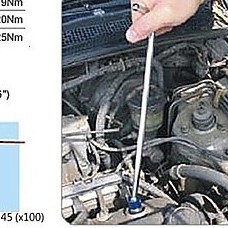Search the Community
Showing results for tags 'using'.
-
Is it a good idea to use a blower to dry the car? I was told that limiting contact with the paintwork will help prevent scratches.
-
Dear all, Just would like to find out what are the CPU brands that you guys are using. Eg. If you have 1 PC using AMD and 1 notebook using Intel, you select "Desktop - AMD" & "Notebook - Intel". And so on. Intel? OR AMD? Multiple choice is allowed.
-
Just for fun: 😁 56 Delightful Victorian Slang Terms You Should Be Using In 1909, writing under the pseudonym James Redding Ware, British writer Andrew Forrester published Passing English of the Victorian era, a dictionary of heterodox English, slang and phrase. "Thousands of words and phrases in existence in 1870 have drifted away, or changed their forms, or been absorbed, while as many have been added or are being added," he writes in the book's introduction. "‘Passing English’ ripples from countless sources, forming a river of new language which has its tide and its ebb, while its current brings down new ideas and carries away those that have dribbled out of fashion." Forrester chronicles many hilarious and delightful words in Passing English; we don't know how these phrases ever fell out of fashion, but we propose bringing them back. 1. Afternoonified A society word meaning “smart.” Forrester demonstrates the usage: "The goods are not 'afternoonified' enough for me.” 2. Arfarfan'arf A figure of speech used to describe drunken men. “He’s very arf’arf’an’arf," Forrester writes, "meaning he has had many ‘arfs,’” or half-pints of booze. 3. Back slang it Thieves used this term to indicate that they wanted “to go out the back way.” 4. Bags o’ Mystery An 1850 term for sausages, “because no man but the maker knows what is in them. ... The 'bag' refers to the gut which contained the chopped meat.” 5. Bang up to the elephant This phrase originated in London in 1882, and means “perfect, complete, unapproachable.” 6. Batty-fang Low London phrase meaning “to thrash thoroughly,” possibly from the French battre a fin. 7. Benjo Nineteenth-century sailor slang for “A riotous holiday, a noisy day in the streets.” 8. Bow wow mutton A naval term referring to meat so bad “it might be dog flesh.” 9. Bricky Brave or fearless. “Adroit after the manner of a brick," Forrester writes, "said even of the other sex, 'What a bricky girl she is.'” 10. Bubble Around A verbal attack, generally made via the press. Forrester cites The Golden Butterfly: "I will back a first-class British subject for bubbling around against all humanity." 11. Butter Upon Bacon Extravagance. Too much extravagance. “Are you going to put lace over the feather, isn't that rather butter upon bacon?” 12. Cat-lap A London society term for tea and coffee “used scornfully by drinkers of beer and strong waters ... in club-life is one of the more ignominious names given to champagne by men who prefer stronger liquors.” 13. Church-bell A talkative woman. 14. Chuckaboo A nickname given to a close friend. 15. Collie shangles Quarrels. A term from Queen Victoria’s journal, More Leaves, published in 1884: “At five minutes to eleven rode off with Beatrice, good Sharp going with us, and having occasional collie shangles (a Scottish word for quarrels or rows, but taken from fights between dogs) with collies when we came near cottages.” 16. Cop a Mouse To get a black eye. “Cop in this sense is to catch or suffer," Forrester writes, "while the colour of the obligation at its worst suggests the colour and size of the innocent animal named.” 17. Daddles A delightful way to refer to your rather boring hands. 18. Damfino This creative cuss is a contraction of “damned if I know.” 19. Dizzy Age A phrase meaning "elderly," because it "makes the spectator giddy to think of the victim's years." The term usually refers to "a maiden or other woman canvassed by other maiden ladies or others.” 20. Doing the Bear "Courting that involves hugging." 21. Don’t sell me a dog Popular until 1870, this phrase meant “Don’t lie to me!” Apparently, people who sold dogs back in the day were prone to trying to pass off mutts as purebreds. 22. Door-knocker A type of beard "formed by the cheeks and chin being shaved leaving a chain of hair under the chin, and upon each side of mouth forming with moustache something like a door-knocker." 23. Enthuzimuzzy "Satirical reference to enthusiasm." Created by Braham the terror, whoever that is. 24. Fifteen puzzle Not the game you might be familiar with, but a term meaning complete and absolute confusion. 25. Fly rink An 1875 term for a polished bald head. 26. Gal-sneaker An 1870 term for "a man devoted to seduction.” 27. Gas-Pipes A term for especially tight pants. 28. Gigglemug “An habitually smiling face.” 29. Got the morbs Use of this 1880 phrase indicated temporary melancholy. 30. Half-rats Partially intoxicated. 31. Jammiest bits of jam “Absolutely perfect young females,” circa 1883. 32. Kruger-spoof Lying, from 1896. 33. Mad as Hops Excitable. 34. Mafficking An excellent word that means getting rowdy in the streets. 35. Make a stuffed bird laugh “Absolutely preposterous.” 36. Meater A street term meaning coward. 37. Mind the Grease When walking or otherwise getting around, you could ask people to let you pass, please. Or you could ask them to mind the grease, which meant the same thing to Victorians. 38. Mutton Shunter This 1883 term for a policeman is so much better than "pig." 39. Nanty Narking A tavern term, popular from 1800 to 1840, that meant great fun. 40. Nose bagger Someone who takes a day trip to the beach. He brings his own provisions and doesn’t contribute at all to the resort he’s visiting. 41. Not up to Dick Not well. 42. Orf chump No appetite. 43. Parish Pick-Axe A prominent nose. 44. Podsnappery This term, Forrester writers, describes a person with a “wilful determination to ignore the objectionable or inconvenient, at the same time assuming airs of superior virtue and noble resignation.” 45. Poked Up Embarrassed. 46. Powdering Hair An 18th-century tavern term that means “getting drunk.” 47. Rain Napper An umbrella. 48. Sauce-box The mouth. 49. Shake a flannin Why say you're going to fight when you could say you're going to shake a flannin instead? 50. Shoot into the brown To fail. According to Forrester, "The phrase takes its rise from rifle practice, where the queer shot misses the black and white target altogether, and shoots into the brown i.e., the earth butt." 51. Skilamalink Secret, shady, doubtful. 52. Smothering a Parrot Drinking a glass of absinthe neat; named for the green color of the booze. 53. Suggestionize A legal term from 1889 meaning “to prompt.” 54. Take the Egg To win. 55. Umble-cum-stumble According to Forrester, this low-class phrase means "thoroughly understood." 56. Whooperups A term meaning "inferior, noisy singers" that could be used liberally today during karaoke sessions.
-
Who here is still using STP Oil treatment? I am still using it for my old Toyota. Its one of the cheapest and oldest oil treatment out there that actually works. No magic about the product. Mainly some viscosity enhancers and lots of Zinc! Thats about all. Cause my car needs a 50wt oil, thus I decide to use 40wt oil and STP instead. IT actually works better than just plain 50wt oil and its cheaper! lol... However, be warned that STP oil treatment contains lots of zinc which may affect your cat. Mine is old car so I don't really care.
-
It seems like the more popular brands are Blackvue or Iroad cameras. I am given the Blaupunkt BP-9.0A with the following specs Resolution : Front 2MP FHD 1080 30fps, Rear : 2MP FHD 1080 30fps Wide viewing angle: Front - 140, Rear - 120° Screen display: Front, Rear, PIP 3.5” touchscreen LCD display Preview, download, playback Videos & Settings Configuration via Smartphone Wireless Control App Automatic memory card format (Format-free Technology) Fixed ‘High Temperature’ & Variable ‘Low Car Battery Voltage’ Cut-off 24-hour automatic park recording Motion detection, automatic display shutdown, G-sensor, loop recording Support up to 128GB Micro SD, Class 10 & above Micro SD Seems pretty legit and decent and i suppose i can save moolah and use it? I just need to get an additional battery pack (Was quoted Cellink) to support its 24hr motion sensor activation to record.
-
So how are you use the $500 that the govt have given us? Last week kopi with my fren, he take that $500 and go take Taxi License. Quite smart thou.
- 129 replies
-
- 1
-

-
- skillsfuture
- $500
-
(and 3 more)
Tagged with:
-
wonder how many bros/sis here use hose connected to the paying taps to wash their cars in mscp? saw a guy using a hose @ a mscp near my place, so now thinking of getting a hose & sprayer too. wondering if there's an ideal length for the hose so that the spray of water would be strong enough? also saw stamford tyres lok yang selling this hose that can be neatly rolled up with an assortment of sprayers for $38. is it worth it to get this set or am i better off getting my own combi?
-
How come technology still so outdated ?
-
Come across this advertisement in my Facebook , for those who wish to earn while driving , this maybe be a great opportunity.
- 59 replies
-
- 4
-

-
- courier service
- online business
-
(and 4 more)
Tagged with:
-
Do all these so called Fuel Saving Gadgets really works? Some of those in the market are shark plug. panther plug and some magnetic gadgets to be inserted at the fuel cable etc.
-
When parking the car, is it ok to leave the auto transmission in P mode while not using hand brake or parking brake? Will this damage the transmission, even when not parking on a slope or incline?
- 49 replies
-
- 1
-

-
- leave
- transmission
- (and 4 more)
-
Hi all taxi uncles or aunties, i am in need (desperately) for advice on how to make a little bit more using taxi share under smrt? Last time i can earn about $12 per hr after deducted rental and fuel. I started to drive again as i kenna fired by company again. Averagely i earn around 6 to 7 dollars per hour. Yesterday was the worst, i earned only $15 for the 10 hours booking. Not much calls from smrt call booking. like 10 hours 1 call. When about to accept after checking how to go, people take already. So i do only street hires. Anyhow Drive for 10km to 20km round ans round the estate only 1 passenger go to short trip $4.58. Not sure Want to laugh or cry. Din install grab because taxi share always different car plate number. Any master here? I like to meet you and buy you coffee hope you can share with me some advice. I am not giving up yet. I only set a very low expectation As long as can breakeven i am fine. Smrt per hour rental was very high. I hope other taxi company can come.out this flexi scheme too. I am a very hard working driver. I usually eat bread inside car to beat time. I only step out to go toilet only. No time to lose. Thank you.
-
This was brought up a few days ago, in the "President" 's policy suggestions... Instead of stopping people using their CPF to pay for their mortgages, why not reduce the prices if HDB flats and not peg them to market prices with land prices? Then Singaporeans will have more money to save with lower HDB flats prices. What Would Happen if You Couldn't Use Your CPF Savings to Buy a Home? https://sg.finance.yahoo.com/news/happen-couldn-apos-t-cpf-213202807.html In response to President Halimah's call for policy suggestions, economist Walter Theseira suggested disallowing the use of CPF savings for home purchases. The measure was proposed in order to address inadequate retirement saving. This could be a logical concern, as putting a significant amount of one's retirement into home may leave them with too few remaining assets to retire comfortably, especially given the uncertainties around the 99-year HDB lease. This proposal would likely have a massive impact on the housing market—over the past decade, around S$82 billion was withdrawn from CPF accounts in order to purchase HDB flats. Given the scale of this proposal, it is worth asking: how would homeowners and prospective homebuyers be affected? How Does The Current System Work? Currently, the Public Housing Scheme (PHS) allows individuals to use their CPF Ordinary Account to pay for a part of their HDB flat purchase. However, homebuyers are limited in the amount that they can withdraw from their CPF savings for the purchase of a HDB lease. Limits are based on the number of years remaining in the lease at the time it is purchased. How Would This Proposal Affect the Real Estate Market? In the short-term, we expect that housing prices would drop as result of proposed rule. The rule will likely prevent many prospective homeowners from being able to afford to purchase homes, as they would have significantly less money to contribute to the purchase. The decreased ability to buy a property should lead to a decline in market demand, which should in turn cause a decrease home prices. For example, we can approximate the scale of change with some basic calculations. In 2017, $7.4 billion was withdrawn for the purpose of purchasing new and resale HDB flats. There were 22,077 resale applications and approximately 17,500 new units in 2017. Assuming average resale values of S$450,000 and average BTO prices of S$310,000, the S$7.4 billion withdrawn in 2017 represents about half (48%) of the total HDB market transactions (S$15.4 billion). Although these are rough estimates, roughly 20% of this might be supporting the actual home value, while the other 30% is being used to pay interest on home loans. In the long run, it seems reasonable to expect that HDB prices could drop by 10-20% as developers acquiesce to consumers' reduced purchasing power while prospective buyers take longer to build enough savings to buy a flat. Good News for Prospective Home Buyers? Overall, this proposal appears that it would be a net-neutral event for prospective home buyers. On one hand, these individuals may have to save longer in order to purchase a home since they will not be able to access their CPF savings. On the other hand, a drop in housing prices could offset their reduced ability to purchase homes. Additionally, these individuals will benefit from having additional retirement savings since their CPF will be able to compound untouched over a long period of time. Bad News for Existing Homeowners However, this proposal definitely could have a negative impact for current property owners. If all buyers in the market are less able to afford current real estate prices, the market forces tend to adjust the prices lower until people can afford flats without the help of their CPF accounts. This would ultimately mean a reduction of wealth for those who already own HDB flats. Additionally, current homeowners may face another negative consequence. Currently, individuals re-selling their HDB flats must refund their CPF account based the principal amount withdrawn for their HDB flat purchase, as well as the amount of accrued interest that the savings would have earned if they had not withdrawn from the CPF account initially. If property values drop significantly, these homeowners will have much more difficult time meeting this refund requirement. How to Make a Smooth Transition The proposal would certainly incentivize increased personal savings and promote wealthier retirement, which could be a financially responsible goal. In order to make this transition easier, however, there are a few concepts to consider. First, because existing homeowners must refund their CPF account based on the amount withdrawn for purchasing a home, declining home prices could put them at significant financial risk. One way to make the proposed rule more palatable would be to decrease the refund requirements for current homeowners. Additionally, if HDB leases were extended, policy makers might be able to both buoy short-term home prices as well as mend a long-term structural issue related to HDBs. It could also help the owners of older flats, whose retirement savings could benefit from increased resale value if leases were easily extended beyond 99 years. ____________________________________________________________________________________________________________ The truth behind proposal to prevent CPF for housing https://sg.finance.yahoo.com/news/truth-behind-proposal-prevent-cpf-065043359.html An academic’s suggestion which seemed to propose that the Central Provident Fund (CPF) monies no longer be allowed to be used to buy residential properties, has in recent days stirred the hornet’s nest. Walter Theseira, professor of Economics at UniSIM, made that suggestion in responding to President Halimah’s call for policy suggestions. Prof Dr Theseira said that the use of CPF savings for housing should be curbed in a bid to prevent the people from over-investing their savings on housing. He noted that people typically over-invest on housing as a way of “unlocking their CPF funds” and that installing measures to limit the use of CPF monies for housing could help the people conserve their savings for retirement and health. He said: “My view is that the CPF system tries to do a little too much, and we should consider focusing CPF on retirement and health…I do believe there is some over-investment in housing, which creates retirement risks if housing values do not grow, and this over-investment is because Singaporeans see housing as a way of unlocking their CPF funds.” One such measure the authorities could instate is slashing CPF contribution rates, Theseira suggested. This would mean that workers would receive more take-home pay that they could allocate to housing. “A CPF system focused on retirement and health would require lower contribution rates, and allow people more choices in using their higher take-home income on housing, investments, business, and family.” While Theseira advocated for a redesign of the CPF system “so that people no longer need to pay for housing out of CPF, by cutting contribution rates to focus on retirement and health,” he added that he is unsure what the right contribution rate should be. His views on the redesign of the CPF system drew sharp criticisms from the members of the public. Some were initially even confused that it was President Halimah who had made that suggestion in her call that there were ‘no sacred cows’. After the public uproar, the professor took to his Facebook to clarify that he did not argue for CPF to be removed completely or even for the housing component of CPF to be removed completely – since it may help people save for their first home. Theseira said: “What the right contribution rate should be, I cannot say. Perhaps some housing component remains important to help people save for their first home. Nor would I argue to remove CPF, because mandating retirement savings remains important, even for (especially for?) people who believe they can do a better job on their own. But this is a topic for another day.” Elaborating, the economist asked: “What choices would we make if a different policy was in place? What trade-offs would we accept if we designed policy? It’s easy to make fun of policymakers, and it’s also easy to critique policy. Finding workable solutions that promote the public interest is a lot harder, but more than ever, we need to work together to help improve policy in Singapore.” Prominent commentator on economic policies, Chris Kuan, said that Theseira’s views on CPF usage are generally sound. Kuan explained: “This bring Singapore back to normality in terms of what social security is used for and will go a long way to minimise the large trade-off between paying for housing and saving for retirement and healthcare. It will also reduce the known tendency of Singaporeans of over-extending housing affordability and hence driving up prices because of the instant gratification they received over CPF being released to pay for property when that gratification can only otherwise be realised decades into the future.” Kuan added that the trade-off between CPF being used for housing and retirement is a complex one, to which there are no easy answers. “There is always that easy argument that the whole problem of the trade-off between housing and retirement is due to HDB affordability and that tiresome mantra that all it takes is just make HDB affordable. Well, making HDB affordable from this point forward is the easy part. The difficult part is how to make HDB affordable without destroying the housing equity and hence retirement proposition of current HDB owners. That is the intractable part of the problem.” “I always held that the huge increase in CPF assets due to the high contribution rates are too much of a temptation for the government,” Kuan, a former international banker, said. Adding: “What better way to use it up than let public housing prices rise – it increases the government reserves which is essentially a very large transfer of wealth from households to the state and slow down the accumulation of government indebtedness.” Although highly unlikely, if Theseira’s proposal was accepted by the Government, it would mean that housing prices will drop drastically. This is because without CPF, many home buyers will be deterred by the large out-of-pocket down-payment that they would have to pay for their prospective homes. This would in turn lead to a decline in demand in the residential property market, driving down prices significantly. A scenario which would be prevented from happening at all costs by policymakers who have vested interests in a healthy real estate market. ____________________________________________________________________________________________________________ What the forefathers has given Singaporeans the flexibility to buy homes with their CPF money in the past, and now these people are thinking of removing this scheme? https://www.cpf.gov.sg/Members/AboutUs/about-us-info/history-of-cpf The evolution of CPF a) CPF and housing – the twin pillars of retirement adequacy To help workers save for retirement, the CPF was established on 1 July 1955. Workers contributed part of their monthly income to their CPF to build up their retirement savings. In 1968, the government introduced the Public Housing Scheme, allowing Singaporeans to pay for the mortgages of their HDB flats using their CPF savings instead of having to use their take-home pay. This increased the affordability of housing and provided many Singaporeans with a home. Home ownership became a key pillar of retirement security as it relieves Singaporeans from having to pay rental fees out of their retirement funds during their senior years.
-
Huh?? Didn’t the petrol companies warned us last time NOT to use handphones at petrol stations as it can cause explosions??....
- 24 replies
-
- 4
-

-
- caltex
- explosions
-
(and 3 more)
Tagged with:
-
Last night (1st May), I was turning out of Giant @ Tampines. Upon reaching Tampines Ave 10 towards TPE, I saw a TP bike whizzed pass me. Although I was on the phone, I was using my trusty bluetooth earpiece. The TP took a look at me and proceed on front. Then I saw the TP turning on his 'berry', stopping a Latio Sports. I think the driver wasn't so fortunate. He was also using his handphone but without an ear-piece. A gentle reminder to all. Talk all you want (M1's commercial) but please, use a ear-piece.
-
Guys, I am thinking of changing my alarm to 2 way type, budget under $300. I google awhile, the most common people recommend in other car forum is SPY alarm. But never say much about the pros and cons. Some talk very highly of them while some say the SPY alarm gone haywire or the remote spoil and warranty does not cover the remote. Anyone using this alarm? I see this SPY C1-808 look quite nice. Any bro using? Any feedback/review/complain on SPY 2 way alarm? Trying to find out more from those that are using before deciding.
-
as above..........
-
Can count w one hand the number of times i used it. Anyone else think its a waste of time esp in SG start stop traffic?
- 82 replies
-
- 4
-

-
- triptronic
- gear
- (and 5 more)
-
Thinking of getting a set of WMF pressure cookers for my wife. That's the only thing that's missing in her arsenal. Care to share your experience? Thanks! Good gravy! I'm still "loginable"
-
When you use your credit card buying something oversea, sometimes the merchant will ask do you want to charge in SGD or the local currency. Which is better??
- 77 replies
-
- credit card
- visa
-
(and 5 more)
Tagged with:
-
Dear forumers, I am planning to resign from my current company soon. I intend to offset my earned leave (30 days) to offset against my notice period of one month. This is allowed under MOM's rules; however, I don't get paid for my leave, and I can immediately start work with my new employer on the next day. I have sought advice from many friends; some say serve your notice, some say use your leave to offset. I have a very tense relationship with my manager and I don't wish to serve the notice period; indirectly, by using my leave to offset, I am working for the company for free for one month, by not cashing in my leave if I serve the notice period. What would you do? Thanks.



.png)













